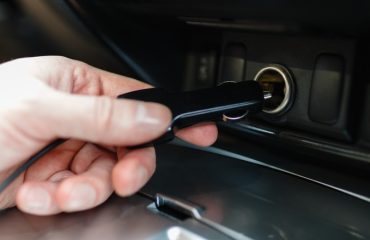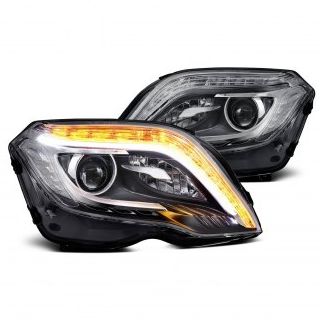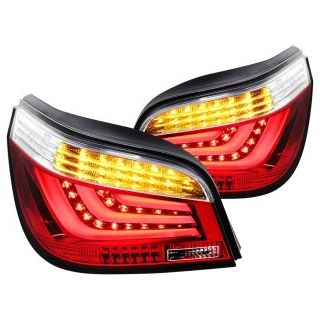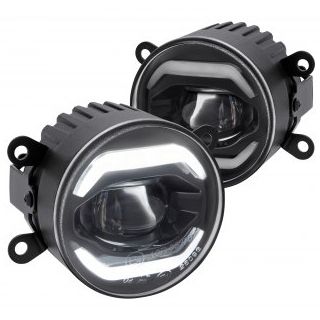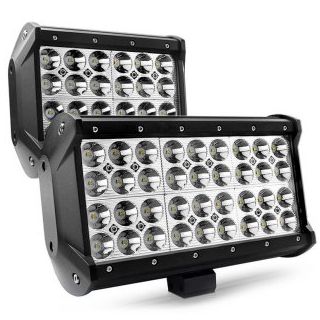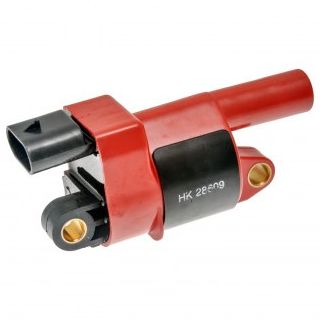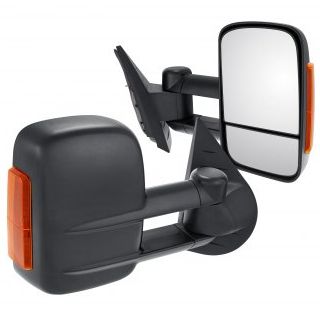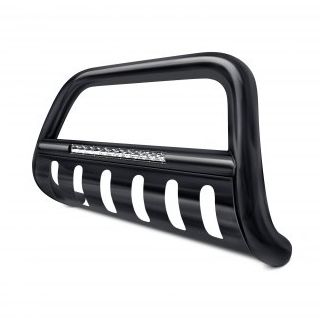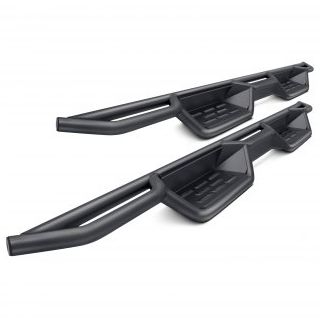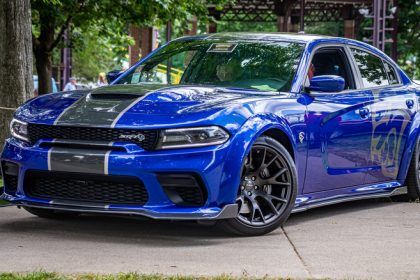
The Hemi engine has dazzled and impressed automotive enthusiasts for decades. The unique hemispherical combustion chamber (Hemi) powers many capable performance vehicles, from muscle cars to modern Ram trucks. You could stick with the stock Hemi that came with your car or truck, but many want to enhance the already robust engine to squeeze even more horsepower and torque out of it. Fortunately, several aftermarket upgrades can take your Hemi from mean to a fully-fledged monster in no time. These upgrades focus on the areas of engine airflow and tuning.
You can fit a range of components to your Hemi that vary in complexity, price, and results. Some products don’t require additional tools, while others will get your hands dirty. The easiest upgrades can be achieved using a tuner and a throttle response controller. The least expensive performance add-on is a cold air intake. For those who are okay with spending a bit more cash, headers are another popular and practical enhancement to your Hemi. Finally, a bolt-on supercharger is the costliest addition, offering the most dramatic jump in power you can achieve.
So, why are these parts a good upgrade option, and what makes them popular? Let’s take a look.
Crank up output with a performance tuner
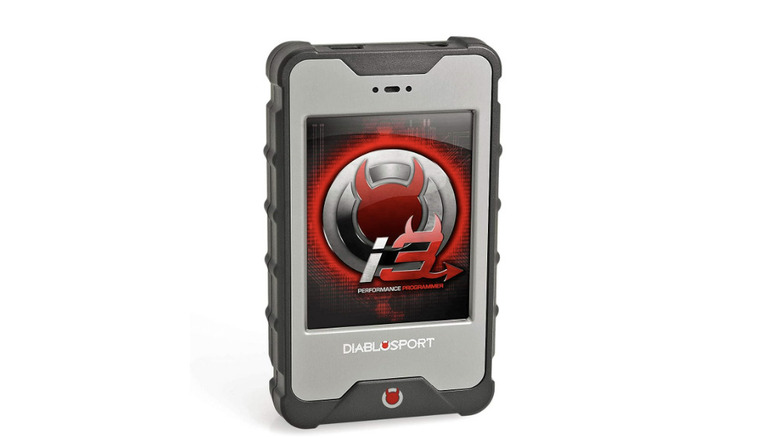
With modern vehicles, an onboard computer controls several settings, such as timing, throttle, fan behavior, and more. You can only tune today’s vehicles with an electronic unit that can plug into the diagnostic port. These tuners come with a display screen but, most importantly, dynamometer-tested presets that can pull the most out of your engine. Imagine only spending around $400 — give or take –and unlocking additional horsepower and efficiency already built into your vehicle.
Before your car or truck leaves the factory, engineers configure much of the engine’s behavior based on what would be best in a wide range of circumstances. These settings are all held within the PCM(powertrain control module), and engineers don’t consider performance power important over other factors like reliability. Since horsepower and torque are typically less prioritized in the stock tuning process, you end up with an artificially limited engine, not by its components, but by a computerized figure.
These small tuners are relatively cheap in terms of performance upgrades, and most importantly, they are straightforward to use. Without needing tools, you can plug in the tuning unit and recalibrate your vehicle with an emphasis on output using one of several preconfigured setups. The low cost point and straightforward process make these tuners attractive to automotive hobbyists.
Use a throttle response controller
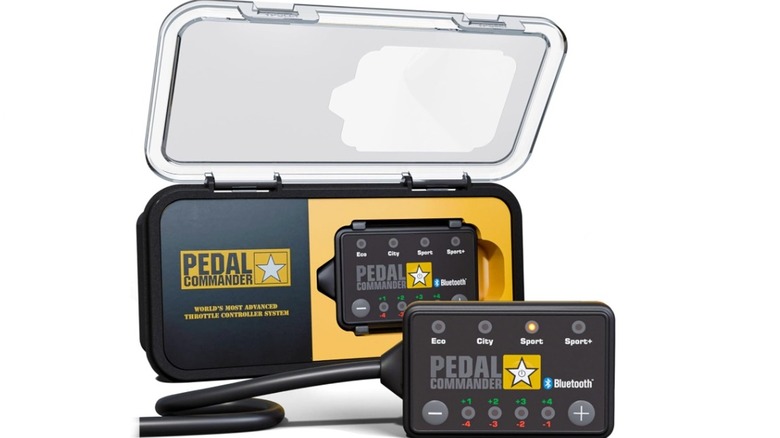
A throttle response controller is another effortless upgrade that won’t empty your wallet. This device works specifically with power delivery to help reduce the lag between depressing the gas pedal and acceleration. If you have experience driving older vehicles, you might have noticed modern cars and trucks have a different feel off the line. There is a delay before acceleration kicks in, which often involves limits placed on your vehicle by the onboard computer.
With a throttle response controller, you can plug into your car or truck and customize the driving experience by recalibrating those baked-in settings. Some products feature different modes that prioritize efficiency and performance or tailer towards the stop-and-go of city streets. Some products also provide customized settings for off-road driving. For around $300, you can effectively enhance your car or truck’s responsiveness off the line for noticeable performance improvements.
The low cost of these devices makes them easily accessible and doesn’t require tools or specialized knowledge. As more Hemi owners discovered these units, they became increasingly popular across platforms like Amazon.
Equip a cold air intake
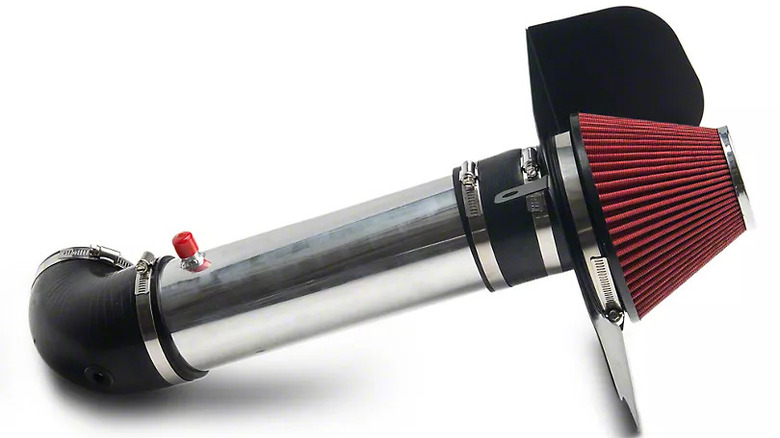
Depending on the brand, a cold air intake kit is likely the cheapest upgrade you can purchase for your Hemi. Besides tuning, a cold air intake is usually the first step in improving engine performance. So, what does a cold air intake do, and should you get one? One of the most significant factors determining how well an engine performs is how well it can breathe. Airflow through the engine is critical, and a cold air intake can help by supplying cold air found away from all the hot components under the hood.
The cooler air gives the engine more oxygen and enables greater performance output. Interestingly, you might also notice acceleration sounds a bit different than it used to, as you can hear the intake sucking in big gulps of air to feed the engine. However, before purchasing a cold air intake, you must verify it’ll fit your Hemi, as products are designed for specific years or sizes. Another consideration is your home state and whether a specific cold air intake will meet local emission requirements.
Typically, cold air intake kits come with everything you need and bolt directly into place, making them a crowd-pleaser among those adding performance parts to their Hemi.
Install long tube headers
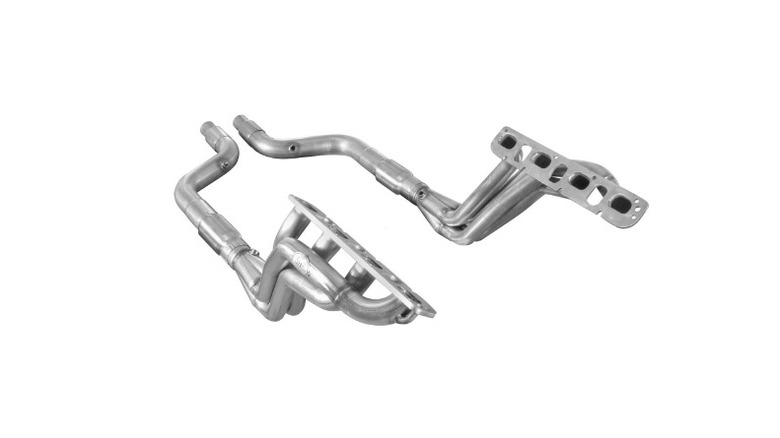
When trying to get the most out of your Hemi, some of the best upgrades improve how air flows through the engine. Automotive enthusiasts are always looking for areas where air is restricted and how to relieve this problem for better performance. Since the pathway for vehicle exhaust isn’t a single part but rather several components fitted together, you can swap out pieces that reduce airflow and replace them with something superior.
Headers include more pipes that can usher greater amounts of exhaust away from the engine and help prevent pressurized air from backing up in the system, reducing airflow. You’ll need to verify the headers you choose will fit your Hemi, as they can vary in shape and design.
Unfortunately, headers are quite a jump in price compared to a cold air intake. Extended tube versions of this part can run as much as $1,500 and upwards. Still, headers can grant you over 30 additional horsepower and around 30 more-pound feet of torque.
Add a supercharger
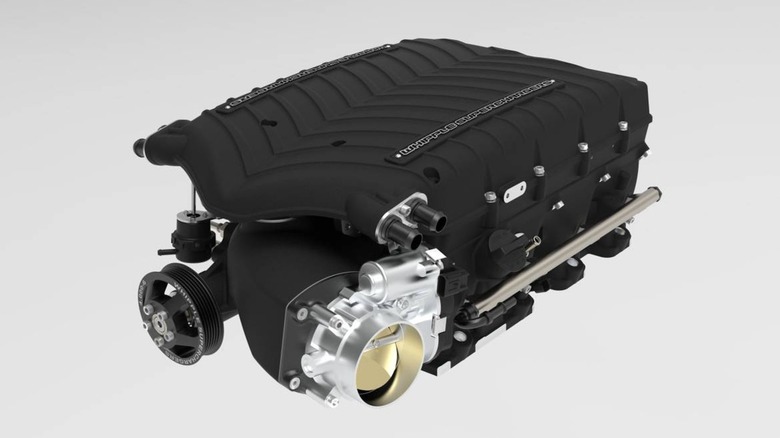
While not inexpensive, a supercharger takes your Hemi to another level if you want to really amp up the power. One of the reasons the engine in the unbelievable Dodge Hellcat is so ferocious, other than its massive 6.2-liter size, is that it comes equipped with a 2.4-liter twin-screw supercharger. Remember, there is a difference between a supercharger and a turbocharger, and you should know the difference before upgrading.
With some heavy lifting from your wallet, likely around the $5,550 to $7,000 range, you can grab a bolt-on supercharger kit designed to fit your Hemi and reap the benefits of amplified air pressure. You’ll need to remember that not all supercharger kits will pass your state emission test. Some products offer a smog-legal tag indicating they won’t give you problems come emissions certification time.
A supercharger sucks in air, then compresses it, forcing more oxygen into the engine, making each intake stroke more potent. The combustion process involves the mixture of air and fuel in the cylinder to create energy. Therefore, forcing more air and fuel into the process results in greater performance output. If a price tag starting at around $5,500 is a bit high, remember that a supercharger can increase power an additional 30% and even closer to 50% in some cases. If some of these upgrades are too rich for your blood, here are the most affordable ways to boost your car’s performance.


